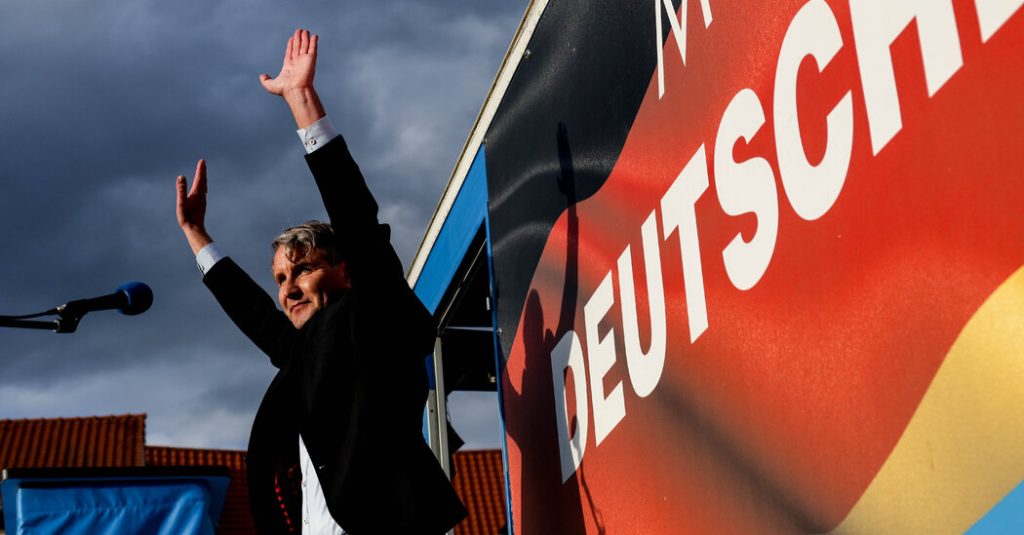Björn Höcke, a right-wing ideologue in Germany, faced charges for using a Nazi slogan at a political rally. Despite this, he has continued to push boundaries of political speech in a country with strict prohibitions against such rhetoric due to the country’s history in the 1930s. His use of Nazi phrases has sparked concern among critics who see him as a threat to German democracy. Despite facing legal repercussions, including fines, Mr. Höcke’s popularity and that of his party, the Alternative for Germany (AfD), have continued to rise.
Mr. Höcke’s upbringing as a conservative from East Prussia has influenced his views on national identity and German history, especially regarding the displacement of Germans after World War II. He has tapped into feelings of victimization among Germans who feel they have been denied their national pride and expression. By questioning long-held taboos around Nazi language and symbolism, Mr. Höcke has sought to make fascist ideas more acceptable in society. His rise to prominence within the AfD reflects a broader shift in the party towards a more radical and nationalist platform.
His opponents accuse Mr. Höcke of trying to destigmatize Germany’s Nazi past and promote a new ethnonationalism. However, his supporters see him as a champion of linguistic freedom, reclaiming unfairly maligned words and defending ethnic German culture. His legal battles over his use of Nazi slogans have highlighted a deeper struggle over narratives of recent German history and the country’s national identity. The AfD’s rise in popularity has influenced mainstream political discourse, with leaders adopting more hostile views on immigration and other issues.
Questions remain about Mr. Höcke’s affiliations with neo-Nazi groups and the extent to which he may be linked to extremist ideologies. His refusal to sign an affidavit denying ties to a neo-Nazi writer has raised suspicions about his past affiliations. Despite being classified as right-wing extremist by Germany’s domestic intelligence service, the AfD’s popularity has continued to grow. Mr. Höcke’s use of controversial language and tactics to attract supporters reflect a calculated strategy outlined by a key figure in the far-right movement.
As Mr. Höcke continues to face legal challenges for his rhetoric, the judiciary may play a crucial role in determining the boundaries of political speech in Germany. With the AfD gaining traction in various regions, there is concern about the party’s influence on mainstream politics. Mr. Höcke’s attempts to downplay his ties to extremist groups and his use of historically loaded language raise questions about his intentions and broader goals. The ongoing struggle over narratives of German history and national identity remains a central theme in the debate surrounding Mr. Höcke and the AfD.


